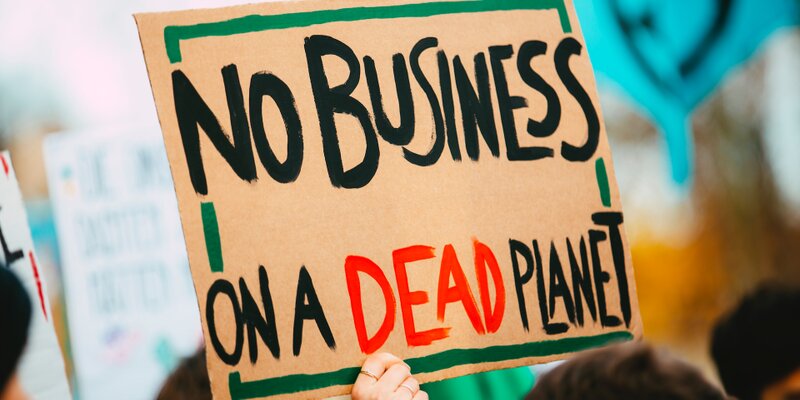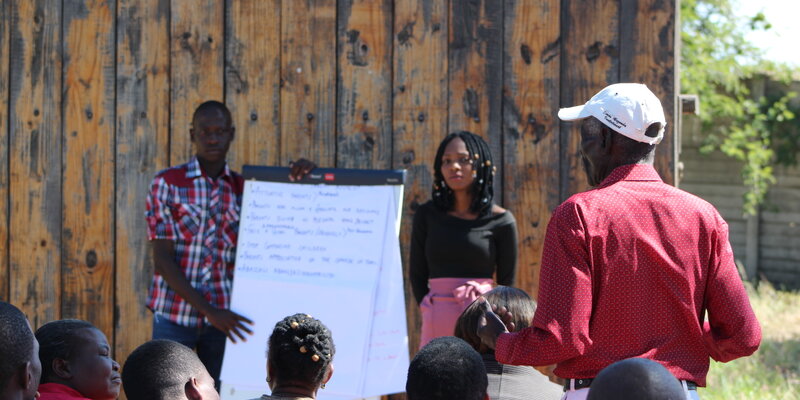From its inception 40 years ago, the healthcare NGO Calcutta Rescue (CR) has adopted a development approach towards its work with the slum dwellers in Kolkata, India. This approach is based on 2 interconnected approaches; firstly, providing good primary health care and secondly, reducing the vulnerability to illness of the inhabitants of these slums. This latter focus of Calcutta Rescue has directed its work towards improving the resilience of both the slum communities to all sources of ill-health (including pandemics & weather extremes) and to the organisation itself.
Calcutta Rescue’s programmes to improve the resilience of the slum communities have included reducing poverty and inequality (skills training & direct cash handouts) and improving access to health (with outreach programmes), education (after school education), sanitation (building toilets), clean water (arsenic extraction systems) and food (dry rations given out in clinics and hot meals in the schools).
CR has recognised that organisational resilience is equally important and has looked to strengthening its health system capacity with improved responses to direct emergencies (extreme weather events and pandemics), environmental harms (air pollution & vector-borne diseases) and social disruption (climate change population displacement, worsening poverty, undernutrition, mental and heat stress). This has been done by expanding its workforce, extending its fundraising to include national voluntary sources of finance (private and business), increasing its outreach capacity and developing its health information systems to monitor the communities, reduce health risk and provide research support.
The beginning of Calcutta Rescue’s climate change journey
110km south of Kolkata in the Bay of Bengal, grows one of the largest mangrove forests in the world. This natural barrier to sea storm surges has protected the Sundarbans coastline over the centuries. On 25th May 2009, however, Cyclone Aila ravaged the region leaving over 1 million Indians and Bangladeshis homeless (Reliefweb, 2009).
Then in May 2020, another extreme storm, Cyclone Amphan, again devastated the region. Calcutta Rescue could see and recognized that the recent cyclones, floods and heatwaves were the result of climate breakdown and were only going to get worse. Calcutta Rescue witnessed how these increasingly frequent & extreme sea storms made the soil increasingly salty and unproductive to farm, contaminated the fresh water ponds in which Rohu fish were farmed and destroyed the bamboo and plastic covered houses of the Sundarbans residents. And they saw how many families, following this loss of their livelihoods, were now migrating into the slums of Kolkata.
Calcutta Rescue’s transition to building Climate Change resilience
From its humble beginning when Dr Jack Preger, a British doctor, single-handedly began to offer medicine to the poor slum dwellers on the streets of Kolkata, the organisation has grown to employ nearly 200 staff including doctors, health educators, physiotherapist, psychologists, pharmacists, community health workers, school teachers and researchers; it runs 4 permanent clinics, 3 outreach health teams, HIV and TB clinics, schools and workshops. CR has a presence in over 50 of Kolkata’s slums with potential touch points of close to half a million residents (NHS England).
Following its annual International Conference in Zurich in June 2022, Calcutta Rescue acknowledged that the health consequences of climate change were going to exacerbate and worsen all the current communicable and non-communicable health risks currently faced by the slum dwellers.
The discussions on the importance of building climate change resilience into all aspects of the organization drew heavily on the Intergovernmental Panel on Climate Change (IPCC) 6th Assessment report 2022 (Climate Change 2022) which demonstrates the importance of adaptation to reduce the burden of ill-health from climate change and the BMA (British Medical Association) June 2020 ‘Sustainable and Environmental friendly General Practice’ (4) which explained that reducing the carbon footprint of primary care can potentially result in a win-win situation by mitigating climate change and simultaneously improving health.
By framing climate change as a health crisis, Calcutta Rescue agreed to build climate change mitigation and adaptation into all decision making. This was seen as simply an extension and expansion of the general resilience building approach to both communities and organization which the NGO had always adopted.
The ‘Nuts and Bolts’ of how Calcutta Rescue began building climate change resilience
In the space of a few short months, Calcutta Rescue, has embraced these concerns and has created a working group to assess community and organisational vulnerability, capacity and adaptation requirements to meet the health threats from climate change. This working group has used and modified the World Health Organization (WHO) Operational framework for building climate resilient health systems 2015 (WHO, 2015) to help it structure its response to building climate change resilience across the organisation and has focussed on 6 main themes.
Modified themes from the ‘WHO Operational Framework for building climate resilient health systems 2015’
Calcutta Rescue has recognised the importance of co-ordination and has set up a working group to lead an integrated approach.
The leadership has recognised the importance of cross-sectoral collaboration with city departments of housing, water, food, waste, energy, transport & sanitation because climate change will create health risks from sectors outside the control of Calcutta Rescue.
The leadership recognises the importance of community engagement, participation and empowerment in developing community resilience with particular focus on gender equality, which is especially important in the context of climate change since women are many times more likely to die than men due to its effects (6).
Climate change will i) result in more extreme, longer lasting and more frequent weather events (floods, droughts, storms, heatwaves), ii) increase vector, food and water borne disease, iii) increase poverty, population migration, undernutrition, and heat and mental health stress, which will significantly increase health needs which the workforce must be ready and trained to address. In response, the NGO has begun to review its workforce (both the numbers and type) and invest in community outreach workers to identify the most vulnerable patients & educate the communities on climate change health threats.
In addition, Calcutta Rescue has committed to increase attention on disaster planning and food distribution during times of acute shocks (floods, pandemics). It has begun training its workforce in emergency health preparedness and climate change understanding in general.
Calcutta Rescue recognises the importance of accurate, reliable, timely, available information to allow it to assess vulnerability in the community, gaps in capacity and the adaptations required. It recognises the value of information to provide an early warning system for extreme weather, pollution, heatwaves and vector borne diseases.
Calcutta Rescue is committed to ongoing health and climate change research (an example of this is that establishing the link between wood burning cooking stoves and respiratory illness is leading to the developing of a cleaner improved wood burning stove).
- Health Technologies (medicine, vaccines, surgical equipment, PPE)
Research on the carbon footprint in UK general practice reveals that approximately 75% is associated with pharmaceutical prescribing. The remaining carbon footprint is made up of patient and staff travel (13%), energy use and other services (12%) (7) (8).
Calcutta Rescue recognises the need to pressure the Pharmaceutical industry to provide information on the relative carbon footprint of their medications to be able to make comparative purchasing choices and encourage recycling and recovery schemes of packaging & plastic inhalers. The Calcutta Rescue clinicians are switching from aerosol inhalers to dry powder inhalers for respiratory conditions and reducing prescribing waste by rationalising the overall number of medicines prescribed. (9)
Calcutta Rescue has begun to embrace the concept of low carbon alternatives to medication with ‘social prescribing’ which has the potential to improve patients’ health and wellbeing while reducing wider health service use. Social prescribing may take the form of nature-based health interventions, exercise programmes and group activities and can be used to supplement conventional medical treatments (10). The Marmot Review 2020 which highlighted health prevention & locally grown food in addition to access to parks and green spaces, described how this can reduce health inequalities (11)
Calcutta Rescue has recognised the need to improve its efficiency by improving its quality of care and emphasising prevention (preventing progression of chronic kidney disease will dramatically reduce the huge carbon footprint of end stage renal dialysis) (12). Calcutta Rescue recognises that reducing waste and duplication extends to reducing the number of booked ‘face-to-face’ appointments for routine follow-up when a telephone consultation will suffice, reduced routine blood investigations and reducing inappropriate prescribing.
Calcutta Rescue is expanding its patient education programme with a focus on improved self-care in the management of chronic illness. Patients with a greater understanding of their condition generally achieve better control and use fewer medicines (13). CR is now rethinking its glove wearing recommendations in favour of frequent handwashing in low risk clinical situations. (14)
Finally, it has been controversially suggested that to reduce its carbon footprint, Calcutta Rescue should return to re-usable instruments with environmentally and economically sound sterilisation processes (concern about Creutzfeldt-Jacob originally lead to disposable single use instruments). (15)
All health programmes and policies within Calcutta Rescue are now informed by climate change considerations which look beyond the immediate causes of disease to consider the climate change induced environmental (air pollution, water, waste, food, housing) and social (migration, poverty, undernutrition) determinants of illness. Calcutta Rescue is developing disaster preparedness plans (food, shelter) to be better prepared for extreme weather events (floods & storms) with the doctors developing protocols to look at emergency service preparedness (heatwaves, pandemics & vector, water and food borne diseases).
The Covid-19 pandemic has encouraged doctors to find alternative to face-to-face consultations. Now Calcutta Rescue recognises the need to continue telephone consultations to reduce the carbon footprint of patient and staff travel. CR understands that it needs to ensure its properties are adapted for weather extremes (rainwater capture, natural cooling with white roofs) and climate change mitigation (solar panels).
Calcutta Rescue is well aware of the costs involved in i) climate change mitigation and adaptation, ii) financial losses that extreme weather events will cause (damage to infrastructure and equipment), iii) and the increased costs of medications, vaccines and equipment when demand is high. But whatever these additional costs, acting now will cost far less than dealing with the climate change consequences.
Calcutta Rescue is aware of climate change funding mechanisms like the Global Environmental Facility, Special Climate Change Fund, Kyoto Adaptation Fund and the UNFCC Green Climate Fund. To date Calcutta Rescue has not yet applied to these sources, but has attracted new money from national corporate social responsibility fundraising activities.
Conclusions and three take home points
There are three general points that have helped shape Calcutta Rescue’s response to building climate change resilience that apply globally.
- We don’t need to wait to invent any more technology to deal with climate change. But we do need to change our behaviour and our thinking now. We have to urgently mitigate and reduce our carbon footprint and we need to adapt to the consequences of global warming. We do this by integrating climate change thinking into every policy decision and plan of action. While we have the technology to give us solutions to sustainable development, what we need, but sadly lack is political will & leadership. Time is running out, but unfortunately the world is terribly distracted by war, disease, hunger & poverty and climate change is dropping down the global priority list.
- The second general point applies to the activity of every healthcare NGO.We all have 3 objectives a) to deliver high quality healthcare, b) to integrate our activities with local city and national services, so as not to duplicate, distract and divert provision and resources. And c) thirdly, to act as champions and set examples of best practice for others to follow. We have to be seen as the torch bearers to light the way forward. As such we NGO’s carry important responsibilities to act as role models and exemplars for people to follow.
- The final take home message is that none of us needs to reinvent the wheel on how to implement change. There are guidelines published at international, national, regional and local levels on how to think about mitigating one’s carbon footprint and how to adapt to climate breakdown. Clearly individual NGO’s need to modify these in the light of their unique circumstances and one size does not fit everyone, but useful and helpful frameworks already exist around which all NGOs can weave and hang their policies and action. We have no excuse to delay our action.
A short introduction about Calcutta Rescue
Calcutta Rescue was founded 40years ago by a British humanitarian doctor Dr Jack Preger. Today it employs nearly 200 staff, providong basic primary care to the slum dwellers of the city of Kolkata. Calcutta Rescue has always recognised that health is influenced by good public health and a thriving community. So in addition to 4 fixed clinics & 3 mobile outreach clinics, it also provides food, cash handouts, 2 schools, handicraft workshops, builds toilets and water purification pumps.
References
6) https://www.un.org/en/chronicle/article/womenin-sh...
7) https://www.bma.org.uk/media/2570/bma-sustainable-and-environmentally-friendly-general-practice-report-june-2020.pdf
8) The green print: advancement of environmental sustainability in healthcare. Resour Conserv Recycling2020;161:104882doi:10.1016/j.resconrec.2020.104882
9) UK Department of Health and Social Care. Good for you, good for us, good for everybody. A plan to reduce overprescribing to make patient care better and safer, support the NHS, and reduce carbon emissions. https://assets.publishing.service.gov.uk/government/uploads/system/uploads/attachment_data/file/1019475/good-for-you-good-for-us-good-for-everybody.pdf
10) Increased wellbeing following engagement in a group nature-based programme: the Green Gym Programme delivered by the Conservation Volunteers. Health Care (Don Mills)2022;10:978.
11)https://www.instituteofhealthequity.org/resources-...
12) Systematic kidney disease management in a population with diabetes mellitus: turning the tide of kidney failure. BMJ Qual Saf2011;20:903-10. doi:10.1136/bmjqs-2011-000061 pmid:21719559
13) “Concrete ways we can make a difference”: a multi-centre, multi-professional evaluation of sustainability in quality improvement education. Med Teach2022;1-9. doi:10.1080/0142159X.2022.2064737. pmid:35543345
14) National infection prevention and control manual (NIPCM) for England. 2022. https://www.england.nhs.uk/chapter-1-standard-infection-control-precautions-sicps/#1-4
15). Operating in a climate crisis: a state-of-the-science review of life cycle assessment within surgical and anesthetic Care. Environ Health Perspect2021;129:76001.






